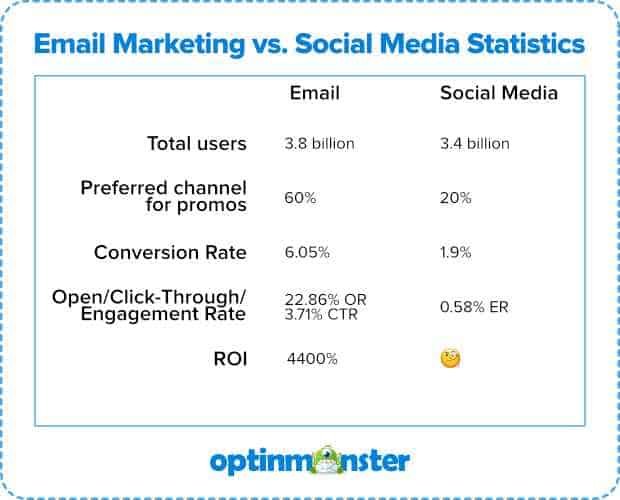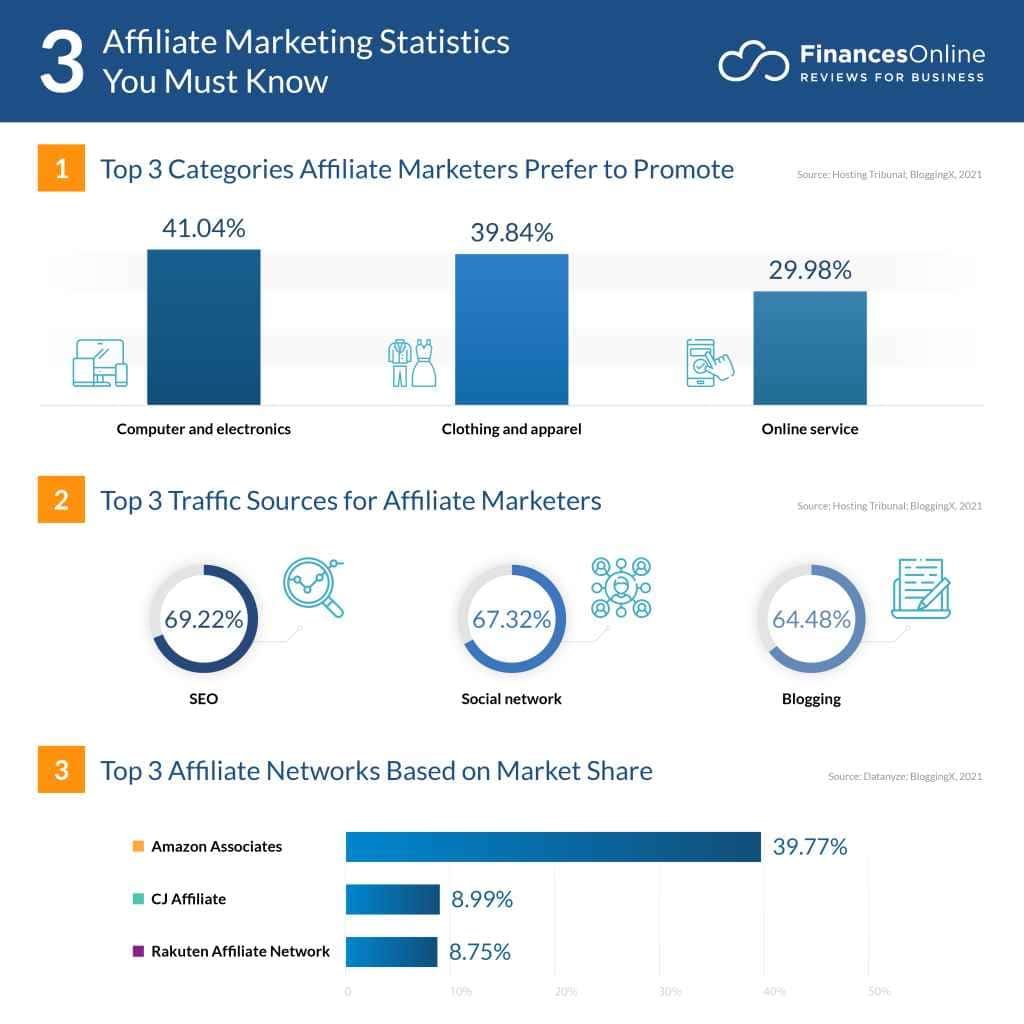In today’s digital age, businesses have a plethora of options when it comes to marketing their products or services. However, two methods that have stood the test of time are affiliate marketing and email marketing. Both have proven to be effective in their own right, but which one truly yields better results? As a seasoned marketer with years of experience in both affiliate and email marketing, I’m here to give you an in-depth comparison of these two strategies so you can determine which is the best fit for your business. So, let’s dive in and discover the pros and cons of affiliate marketing and email marketing, and ultimately answer the question – which one should you invest your time and resources in to generate the best results?
Affiliate Marketing vs Email Marketing Comparison Table
Key Features
| Features | Affiliate Marketing | Email Marketing |
|---|---|---|
| Cost | Low to Medium | Low |
| Targeting | Specific to niche market | Specific to email subscribers |
| Conversion Rate | Varies based on affiliate program and product | Varies based on email content and subscriber engagement |
| Reach | Dependent on affiliate network and program | Dependent on email list size and segmenting |
| Control | Limited control over affiliate partner’s actions | Full control over email content and timing |
| Relationship Building | Less direct contact with audience | Direct contact with subscribers |
| Brand Awareness | Can increase brand awareness through affiliate partnership promotions | Can increase brand awareness through consistent email campaigns |
Specifications
| Specifications | Affiliate Marketing | Email Marketing |
|---|---|---|
| Platform | Relies on an affiliate network or program | Can use email service providers or marketing automation platforms |
| Creative Materials | Provides banners, text links, and promotional materials to affiliates | Creates email templates, landing pages, and graphics for campaigns |
| Payment Model | Performance-based payment model (pay-per-click, pay-per-sale, etc.) | Flat-rate or performance-based payment model (pay-per-click, pay-per-conversion, etc.) |
| Tracking | Uses tracking codes or cookies to track referrals and conversions | Uses tracking pixels and analytics to track opens, clicks, and conversions |
| Optimization | Can optimize affiliate partnerships for better results | Can optimize email content and timing for better engagement and conversions |
| Compliance | Must comply with affiliate network and program guidelines | Must comply with anti-spam laws and email best practices |

Affiliate Marketing
Affiliate marketing is a marketing strategy where affiliates earn a commission for promoting a company’s products or services.
Pros
- Cost-effective as it saves on advertising costs.
- Increased reach and exposure since affiliates promote the products or services to their audience.
- Highly targeted audience as affiliates typically promote products or services relevant to their niche.
Cons
- Requires a strong relationship between the company and affiliates to ensure high-quality promotions.
- Difficult to manage multiple affiliates and their promotions especially if the company has a large product range.
- Competitive as many companies use affiliate marketing to promote their products or services.
Key Points
- Affiliate marketing is a cost-effective way to promote products or services as opposed to traditional marketing.
- It is crucial for companies to build strong relationships with affiliates to ensure high-quality promotions.
- Companies need to determine the commission rate for affiliates.
Features
- Affiliate commission tracking
- Affiliate network management
- Affiliate link generation
According to market researchers, businesses generate $12 million in affiliate marketing sales annually.
Suggestion for potential users: Companies with a range of products or services and a limited advertising budget could use affiliate marketing to reduce advertising costs while still increasing their reach and audience.
Email Marketing
Email marketing is a marketing strategy that involves sending marketing messages via email to a targeted audience.
Pros
- Cost-effective as compared to traditional marketing methods.
- Easy to track and monitor the performance of marketing campaigns.
- Highly targeted as emails can be sent to a specific audience based on factors such as demographics and behavior.
Cons
- Emails can be marked as spam if not targeted correctly, which can negatively impact the brand’s reputation.
- Email lists can become outdated quickly.
- Requires a lot of planning and research to be effective.
Key Points
- Email marketing is a cost-effective way to connect with customers and increase brand awareness.
- Email marketing can be used to promote products or services, share information, and build relationships with customers.
- Email marketing requires planning, research, and consistent implementation to be effective.
Features
- Email template creation
- Email automation
- Email list building and management
According to research, email marketing has an average return on investment (ROI) of 4200%.
Suggestion for potential users: Small businesses with established email lists and a limited marketing budget can use email marketing to connect with customers effectively and achieve a high ROI.
Comparison: Affiliate Marketing vs. Email Marketing
Affiliate marketing and email marketing are both effective marketing strategies that can help businesses increase their reach and target audience. While affiliate marketing focuses on commission-based product promotion, email marketing is more versatile and can be used for product promotion, customer communication, and relationship-building.
Quantitative Measurements:
- Affiliate marketing generates $12 million in annual sales.
- Email marketing has an average ROI of 4200%.
Reasons to Consider:
- Consider affiliate marketing for businesses with a range of products or services and a limited marketing budget.
- Consider email marketing for businesses with established email lists, a limited marketing budget, and a need for versatile marketing.
Reasons to Ignore:
- Affiliate marketing may not be ideal for businesses with limited resources to manage the promotion and commissions of multiple affiliates.
- Email marketing may not be effective if the email list is not up-to-date or not targeted to the right audience.

Guidelines for Using Affiliate Marketing vs. Email Marketing: Which Yields Better Results?
Understand the Differences
Affiliate marketing relies on promoting a product or service to an audience using a unique affiliate link. Email marketing involves collecting email addresses from potential customers and sending them promotional emails.
Understanding the nuances of each approach will help you better tailor your marketing strategy.
Choose the Right Platform
When it comes to affiliate marketing, it’s critical to choose a platform that aligns with your niche and has a large audience.
For email marketing, it’s important to select an email marketing service that can deliver your messages effectively and provide helpful analytics and insights.
Provide Value
Regardless of which approach you use, the key to success is providing value to your audience. With affiliate marketing, this means promoting products or services that align with your audience’s needs and interests. With email marketing, this means sending personalized and relevant content to your subscribers.
By providing value, you can establish trust and authority with your audience, leading to better results in the long run.
How To Compare Affiliate Marketing and Email Marketing
Get a clear understanding of each type of marketing so you can weigh the pros and cons.
How To Determine Which Marketing Approach Is Right For Your Business
Consider your niche, target audience, budget, and goals to decide which method will give you the best results.
How To Create Effective Affiliate Campaigns
Research and select relevant affiliate programs, create engaging content, promote products through your channels, and track your conversions and revenue.
How To Develop Successful Email Marketing Campaigns
Create a targeted email list, craft compelling subject lines and email content, send emails at strategic times, and track your open rates, click-throughs, and conversions.
How To Measure the Success of Your Marketing Efforts
Use tools like Google Analytics and conversion tracking to analyze data and adjust your strategies accordingly.
Frequently Asked Questions: Affiliate Marketing vs. Email Marketing: Which Yields Better Results?
1. What is Affiliate Marketing?
Affiliate marketing is a performance-based marketing strategy in which an affiliate promotes a company’s product or service and earns a commission for every successful sale or lead generated. The affiliate promotes the product or service through their own channels such as websites, social media, or email marketing campaigns.
2. What is Email Marketing?
Email marketing is a digital marketing strategy in which a company or business sends promotional messages and newsletters to a list of subscribers via email to promote their product or service. The purpose of email marketing is to build brand awareness, facilitate customer interaction, and drive sales or traffic to a website.
3. Which marketing technique results in better conversions: Affiliate marketing or Email marketing?
Both affiliate marketing and email marketing can yield significant results, but the choice of technique will depend on your desired outcome and target audience. Affiliate marketing can be extremely effective in generating leads, increasing sales, and driving traffic to your website, whereas email marketing can help build long-term customer relationships and brand loyalty. Ultimately, it’s essential to evaluate your campaign objectives and understand the audience you are targeting before making a decision.
4. What is the role of ROI (return on investment) in Affiliate Marketing vs Email Marketing?
ROI is an important metric to consider when evaluating the effectiveness of your marketing campaigns. Affiliate marketing often yields higher ROI as the commission is only paid when a successful sale or lead has been generated. Email marketing, on the other hand, has a lower ROI as it is not always possible to track the success of each email sent. However, email marketing can generate a higher return on investment over time by building long-term customer relationships and increased brand loyalty.
5. Can I use both Affiliate Marketing and Email Marketing in my marketing strategy?
Absolutely! The combination of affiliate marketing and email marketing can be an effective strategy to reach a broader audience, generate leads, and drive sales. By leveraging the strengths of each marketing technique, the results can be more effective than using only one of them.
In conclusion, both affiliate marketing and email marketing have their unique advantages and limitations. While affiliate marketing can help you reach a wider audience and drive more traffic to your website, email marketing can help you build stronger relationships with your customers and maximize customer lifetime value.
It’s essential to understand that the success of your marketing efforts depends on your business objectives, customer needs, and communication style. The best approach is to adopt a holistic marketing strategy that combines both affiliate and email marketing with other techniques that suit your business model.
Our final recommendation is to conduct research, test various marketing techniques, and analyze the results to discover what works best for your business. By doing so, you’ll be able to optimize your marketing efforts, drive better results, and build a more profitable business in the long run.